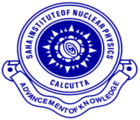Speaker
Kousik Loho
(Indian Institute of Technology Gandhinagar)
Description
Particulate Dark Matter (DM), completely isolated from the Standard Model(SM) particle sector, can be produced in the early universe from Primordial Black Hole (PBH) evaporation. However, Big Bang Nucleosynthesis (BBN) observations put an upper bound on the initial mass of PBH requiring the PBH to evaporate completely before the advent of BBN. DM particles of mass $\sim(10-10^9)$ GeV can not explain the observed relic abundance for an early matter dominated universe due to this BBN constraint. In this work, we have explored the possibility of achieving the observed relic with a DM mass from the above mentioned range for an early matter dominated era with two evaporating PBHs.
Primary authors
Dr
Arnab Chaudhuri
(Indian Institute of Technology Gandhinagar)
Dr
Baradhwaj Coleppa
(Indian Institute of Technology Gandhinagar)
Kousik Loho
(Indian Institute of Technology Gandhinagar)
